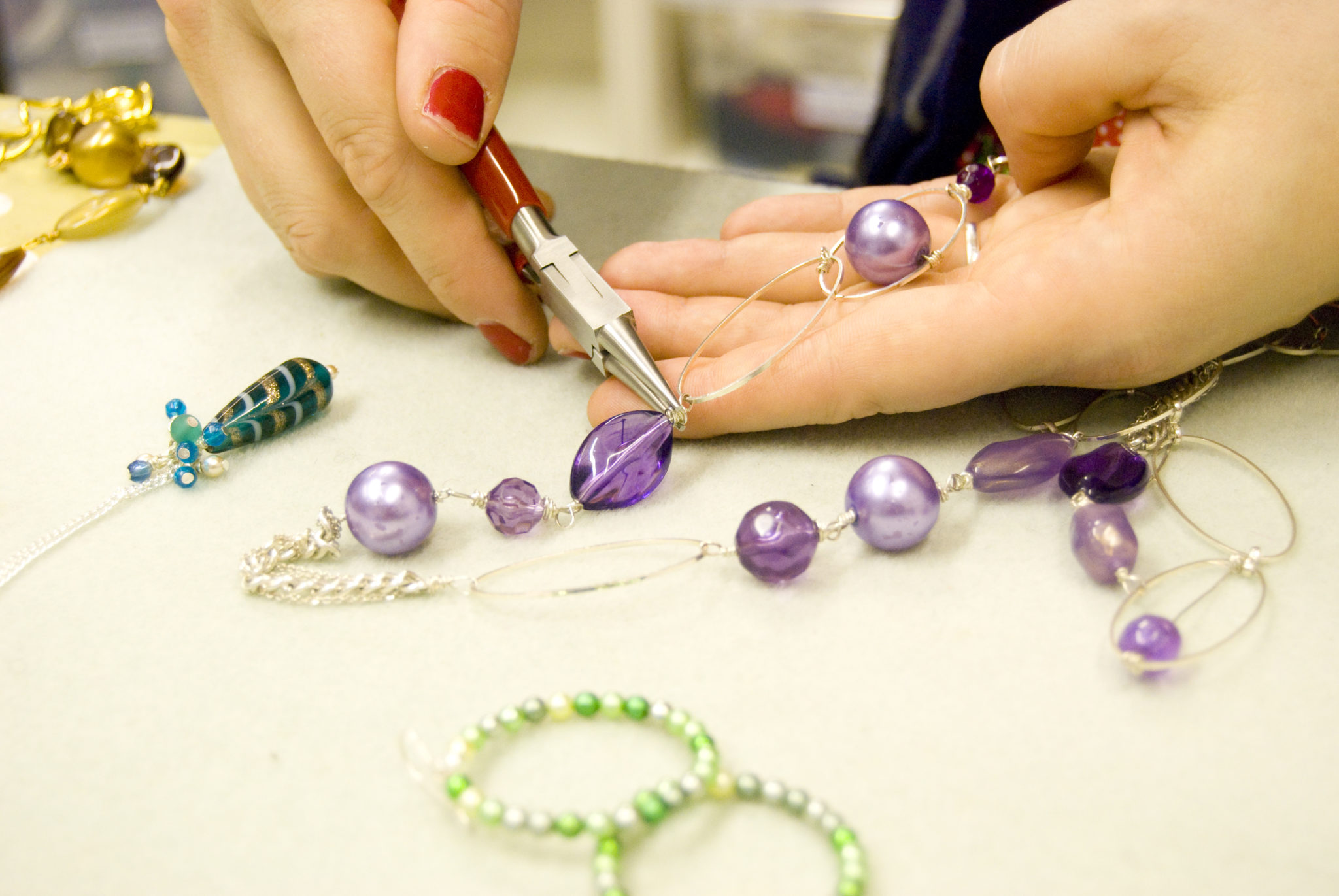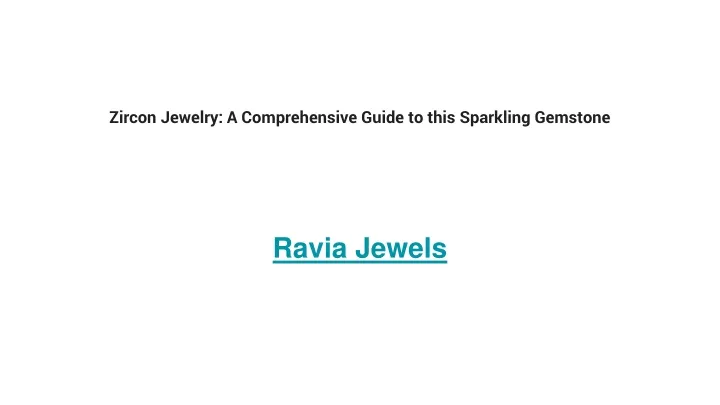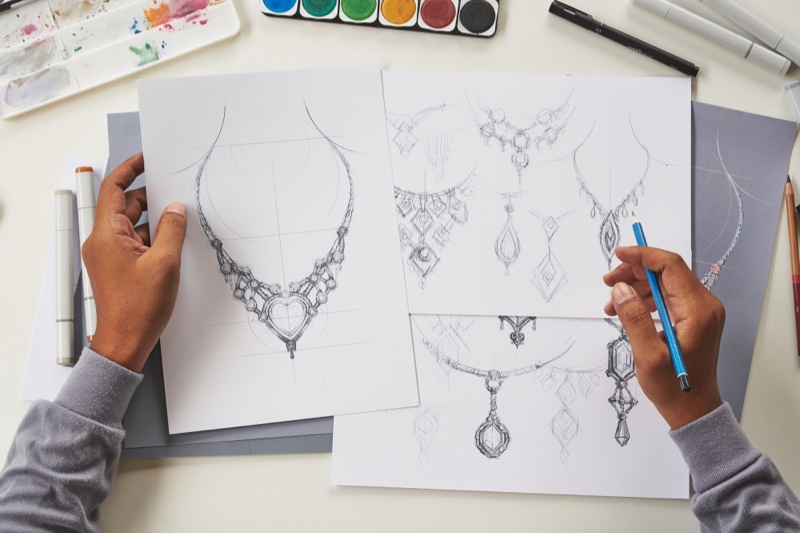A Glimpse into the Sparkling World of Jewelry Jobs: A Comprehensive Guide
Related Articles: A Glimpse into the Sparkling World of Jewelry Jobs: A Comprehensive Guide
Introduction
With enthusiasm, let’s navigate through the intriguing topic related to A Glimpse into the Sparkling World of Jewelry Jobs: A Comprehensive Guide. Let’s weave interesting information and offer fresh perspectives to the readers.
Table of Content
A Glimpse into the Sparkling World of Jewelry Jobs: A Comprehensive Guide

The world of jewelry is a captivating realm, filled with beauty, craftsmanship, and a rich history. But beyond the allure of sparkling gemstones and intricate designs lies a diverse and rewarding career landscape. This article delves into the intricacies of jewelry jobs, offering a comprehensive overview of the various roles, skills, and opportunities within this fascinating industry.
The Allure of Jewelry Jobs
Jewelry holds a unique position in our lives, serving as expressions of personal style, tokens of affection, and even investments. This intrinsic value translates into a thriving industry that offers a wide array of career paths. The appeal of jewelry jobs extends beyond financial rewards, encompassing:
- Creative Expression: Jewelry creation is an art form, allowing individuals to express their creativity through design, fabrication, and embellishment.
- Technical Skill: Many jewelry roles require meticulous attention to detail, precise hand-eye coordination, and a mastery of specialized techniques.
- Historical Connection: Working with jewelry often involves understanding its historical significance, cultural contexts, and the evolution of design trends.
- Client Interaction: Jewelry professionals frequently interact with clients, providing personalized service, advising on style choices, and nurturing relationships.
A Spectrum of Jewelry Jobs
The jewelry industry offers a spectrum of career paths, each demanding unique skills and expertise. Here’s a breakdown of some prominent roles:
1. Design and Creation:
-
Jewelry Designer: This role involves conceptualizing and sketching jewelry designs, translating ideas into tangible prototypes, and collaborating with manufacturers.
- Required Skills: Artistic vision, design software proficiency, knowledge of materials and gemstones, understanding of current trends.
-
Goldsmith/Silversmith: Skilled artisans who craft jewelry from precious metals, employing techniques like casting, soldering, and engraving.
- Required Skills: Metalworking expertise, precision hand-eye coordination, attention to detail, knowledge of metal properties.
-
Gemologist: Experts in identifying, grading, and evaluating gemstones. They determine the quality, authenticity, and value of precious stones.
- Required Skills: Extensive knowledge of gemstones, gemological equipment proficiency, analytical skills, and understanding of market trends.
2. Manufacturing and Production:
-
Jewelry Maker/Bench Jeweler: Craftspeople who manufacture jewelry pieces using various techniques, including casting, setting, polishing, and finishing.
- Required Skills: Technical proficiency in jewelry making, knowledge of different fabrication methods, attention to detail, and ability to work with precision tools.
-
Production Manager: Oversees the entire manufacturing process, ensuring quality control, meeting deadlines, and managing production resources.
- Required Skills: Strong organizational and leadership skills, knowledge of jewelry production processes, experience with inventory management, and understanding of quality control standards.
3. Retail and Sales:
-
Jewelry Sales Associate: Interacts with customers, provides personalized service, assists with product selection, and educates clients on jewelry styles, materials, and care.
- Required Skills: Excellent communication and interpersonal skills, product knowledge, passion for jewelry, and ability to build rapport with clients.
-
Jewelry Buyer: Responsible for sourcing and selecting jewelry inventory for retail stores, considering market trends, customer preferences, and profitability.
- Required Skills: Strong negotiation skills, knowledge of jewelry trends, understanding of market pricing, and ability to analyze sales data.
-
Jewelry Consultant: Provides expert advice on jewelry selection, customization, and care. They often specialize in specific areas, such as engagement rings or antique jewelry.
- Required Skills: Deep knowledge of jewelry styles, materials, and trends, excellent communication skills, ability to build trust with clients, and understanding of market values.
4. Other Roles:
-
Jewelry Appraiser: Evaluates the value of jewelry pieces for insurance purposes, estate settlements, or legal proceedings.
- Required Skills: Extensive knowledge of jewelry styles, materials, and market values, gemological expertise, and strong analytical skills.
-
Jewelry Historian: Researches and documents the history of jewelry, tracing its evolution, cultural significance, and artistic expressions.
- Required Skills: Strong research skills, knowledge of art history and cultural studies, ability to analyze and interpret historical sources, and excellent writing skills.
-
Jewelry Journalist/Writer: Creates content about jewelry trends, design innovations, and industry news for publications, websites, and social media platforms.
- Required Skills: Strong writing and communication skills, knowledge of jewelry trends, ability to research and interview experts, and understanding of SEO and online content creation.
The Importance of Education and Training
While passion and creativity are essential, a solid foundation in jewelry knowledge and skills is crucial for success. Educational pathways include:
- Formal Education: Many colleges and universities offer degree programs in jewelry design, gemology, or related fields. These programs provide theoretical knowledge, practical training, and industry connections.
- Vocational Training: Trade schools and specialized workshops offer intensive training in specific jewelry skills, such as metalworking, gemstone setting, or jewelry repair.
- Apprenticeships: Working alongside experienced jewelers provides hands-on experience, mentorship, and a practical understanding of the industry.
- Continuing Education: Workshops, seminars, and online courses allow professionals to stay current with industry trends, learn new techniques, and enhance their skills.
The Future of Jewelry Jobs
The jewelry industry is constantly evolving, driven by technological advancements, changing consumer preferences, and the increasing demand for sustainable practices. Here are some emerging trends shaping the future of jewelry jobs:
- 3D Printing: This technology is revolutionizing jewelry design and production, allowing for complex and intricate designs, rapid prototyping, and personalized customization.
- E-commerce: Online platforms are transforming jewelry retail, offering greater accessibility, wider selection, and direct-to-consumer connections.
- Sustainability: Consumers are increasingly seeking ethically sourced materials, recycled metals, and eco-friendly production practices.
- Personalized Jewelry: The demand for unique and customized pieces is growing, prompting a shift towards bespoke designs and personalized experiences.
FAQs about Jewelry Jobs
1. What are the entry-level positions in the jewelry industry?
Entry-level positions include jewelry sales associates, jewelry makers’ assistants, or apprenticeships in jewelry workshops. These roles provide an introduction to the industry, hands-on experience, and a chance to develop essential skills.
2. What are the average salaries for jewelry jobs?
Salaries vary depending on experience, skill level, location, and specific role. However, entry-level positions typically offer hourly wages, while more experienced professionals may earn salaries or commissions.
3. How can I find jewelry jobs?
Online job boards, industry publications, and social media platforms are valuable resources for finding jewelry job openings. Networking within the industry and attending jewelry trade shows can also lead to opportunities.
4. What are the benefits of working in the jewelry industry?
Working in jewelry offers a blend of creativity, technical skill, and client interaction. It provides opportunities for artistic expression, personal growth, and contributing to a timeless industry.
5. What are some tips for success in a jewelry career?
- Develop a strong foundation in jewelry knowledge, skills, and techniques.
- Stay current with industry trends, materials, and design innovations.
- Cultivate excellent communication and interpersonal skills.
- Build a strong network of industry professionals.
- Embrace continuous learning and professional development.
Conclusion
The jewelry industry is a vibrant and rewarding career landscape, offering a multitude of opportunities for individuals with diverse skills and passions. From design and creation to retail and manufacturing, the realm of jewelry presents a captivating blend of artistry, craftsmanship, and business acumen. By pursuing education, training, and a dedication to excellence, individuals can embark on fulfilling and rewarding careers within this sparkling world.








Closure
Thus, we hope this article has provided valuable insights into A Glimpse into the Sparkling World of Jewelry Jobs: A Comprehensive Guide. We thank you for taking the time to read this article. See you in our next article!
